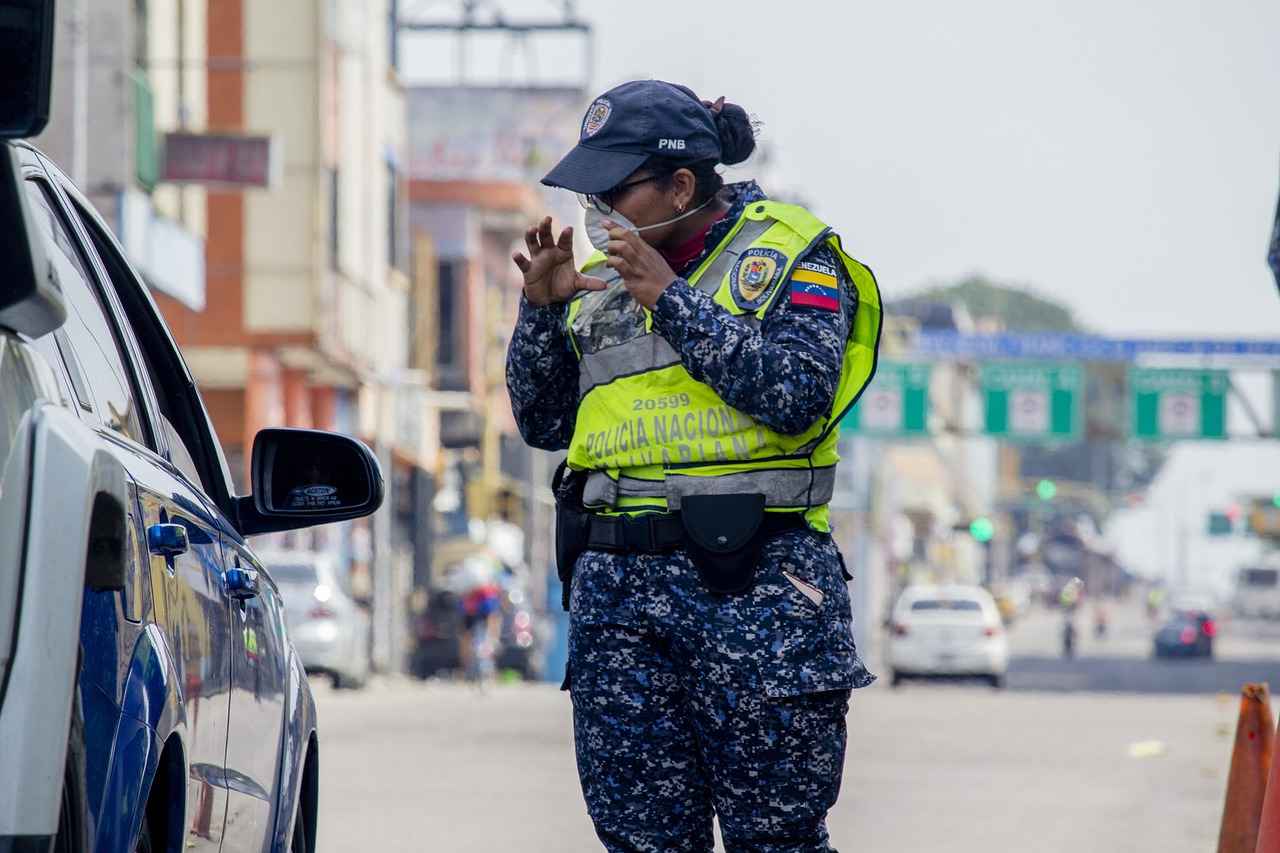This article delves into the financial implications of suing the police, examining the potential costs, legal processes, and various factors that can influence expenses. Understanding these aspects is crucial for individuals considering legal action against law enforcement.
What Are the Typical Legal Costs Involved in Suing the Police?
The costs associated with suing the police can vary widely based on several factors. Common expenses include:
- Attorney Fees: These can be charged on an hourly basis or through a contingency fee arrangement.
- Court Costs: Filing fees and other administrative costs can accumulate quickly.
- Expert Witness Fees: If your case requires expert testimony, these fees can add significantly to the total.
How Do Attorney Fees Affect the Total Cost of a Lawsuit?
Attorney fees are often the most substantial part of the legal costs. There are two primary structures for these fees:
- Hourly Rates: Some attorneys charge by the hour, which can lead to unpredictable total costs depending on the case duration.
- Contingency Fees: In this structure, the attorney receives a percentage of any settlement or award, making it more accessible for plaintiffs who may not have upfront funds.
What Are Additional Costs to Consider?
Beyond attorney fees, plaintiffs should be aware of other potential costs:
- Filing Fees: These are required to initiate the lawsuit.
- Costs for Obtaining Evidence: This may include expenses for records, depositions, and investigative work.
What Factors Influence the Cost of a Lawsuit Against the Police?
Several variables can affect the overall cost of suing the police. These include:
- Case Complexity: More complex cases generally require more resources and time.
- Jurisdiction: Different courts may have varying fees and procedural requirements.
- Experience of the Legal Team: More experienced attorneys may charge higher fees but can also lead to better outcomes.
Are There Any Financial Assistance Programs Available?
Financial assistance programs can help mitigate the costs of legal action against law enforcement. Resources include:
- Non-Profit Organizations: Many organizations focus on civil rights and police misconduct, offering support and guidance.
- Pro Bono Legal Services: Some attorneys provide free legal representation, particularly for cases involving significant public interest.
What Should You Consider Before Deciding to Sue the Police?
Before initiating a lawsuit, it’s essential to consider the emotional and financial implications. Suing the police can be a lengthy and stressful process, often requiring a significant emotional investment. Additionally, understanding the legal process is crucial, from the initial consultation to the potential trial.
What Are the Potential Outcomes of Suing the Police?
The outcomes of a lawsuit against the police can vary significantly. Possible results include:
- Settlements: Many cases are resolved through settlements prior to trial.
- Judgments: If the case goes to trial, a judgment may be awarded in favor of the plaintiff or the police.
What Happens If You Win the Case?
Winning a case against the police can lead to financial compensation for damages, which may include medical expenses, lost wages, and emotional distress.
What Are the Risks of Losing a Lawsuit?
Conversely, losing a lawsuit can result in significant financial and emotional consequences, including the possibility of being required to pay the opposing party’s legal fees. Therefore, it is crucial to weigh the risks and benefits before proceeding with legal action.

What Are the Typical Legal Costs Involved in Suing the Police?
Suing the police can be a daunting process, not only due to the emotional and legal challenges involved but also because of the potential financial burden. Understanding the typical legal costs associated with such lawsuits is crucial for anyone considering this path. This section aims to break down the various expenses that plaintiffs may encounter when pursuing legal action against law enforcement.
The costs associated with suing the police can vary widely, influenced by several factors such as the complexity of the case, the jurisdiction, and the experience of the legal team involved. Below is a breakdown of the common expenses that plaintiffs might face:
- Attorney Fees: One of the most significant expenses in any lawsuit is the cost of legal representation. Attorney fees can be structured in several ways, including hourly rates or contingency fees. Understanding these structures is essential for budgeting your legal expenses.
- Court Costs: Filing a lawsuit involves various court fees, which can include filing fees, service of process fees, and other administrative costs. These fees can add up quickly, especially if the case goes to trial.
- Expert Witness Fees: In many police misconduct cases, expert witnesses may be required to testify. These professionals can charge significant fees for their services, which can be a substantial part of your overall costs.
- Investigation Expenses: Gathering evidence to support your case may require hiring private investigators or obtaining records, which can incur additional costs.
- Travel Expenses: If your case involves travel for court appearances or meetings with your attorney, these costs can also contribute to the overall expense of suing the police.
Each of these expenses can contribute significantly to the total cost of litigation. It’s important to have a clear understanding of these costs before proceeding with a lawsuit.
Attorney fees can significantly impact the overall cost of a lawsuit against the police. Understanding how these fees work is crucial for potential plaintiffs. Many attorneys charge by the hour, while others may work on a contingency fee basis, meaning they only get paid if you win your case. This can be beneficial for plaintiffs who may not have the funds to pay upfront legal costs.
Hourly rates can vary widely based on the attorney’s experience and the region in which they practice. In some cases, a highly experienced attorney may charge more, but their expertise might lead to a quicker and more favorable outcome.
Beyond attorney fees, there are other costs involved in legal proceedings. These can include:
- Filing Fees: These are mandatory fees for submitting your lawsuit to the court.
- Costs for Obtaining Evidence: This may include fees for obtaining police reports, medical records, or other documentation necessary for your case.
- Deposition Costs: If depositions are required, this can also add to your legal expenses.
Being aware of these additional costs can help you prepare financially for the lawsuit process.
Several factors can affect the overall cost of suing the police. The complexity of your case, the jurisdiction in which you file, and the experience level of your legal team are all critical considerations. More complex cases may require more resources, leading to higher costs. Additionally, jurisdictions may have different fee structures and court costs, which can influence your total expenses.
Understanding these factors can help you make informed decisions regarding your legal strategy and budget.

How Do Attorney Fees Affect the Total Cost of a Lawsuit?
When considering legal action against the police, one of the most significant financial factors is attorney fees. These fees can vary widely based on several factors, including the attorney’s experience, the complexity of the case, and the specific fee structure employed. Understanding how these fees are calculated and what they entail is crucial for potential plaintiffs.
There are primarily two types of attorney fee structures: hourly rates and contingency fees. Each has its advantages and disadvantages, and knowing the difference can help individuals make informed decisions about their legal representation.
- Hourly Rates: Attorneys charging by the hour will bill clients for the time spent working on their case. Hourly rates can range significantly based on the attorney’s experience and location. For instance, a seasoned attorney in a major city may charge upwards of $300 per hour, while a less experienced lawyer in a smaller town might charge $150 per hour.
- Contingency Fees: This structure is common in personal injury and civil rights cases. Under a contingency fee agreement, the attorney only gets paid if the plaintiff wins the case. Typically, the attorney will take a percentage of the settlement or judgment, usually ranging from 25% to 40%. This arrangement can be beneficial for plaintiffs who may not have the funds to pay upfront legal fees.
Choosing between hourly rates and contingency fees can have significant implications for the plaintiff’s financial situation. With hourly rates, clients must be prepared for potentially high costs, especially if the case drags on or requires extensive legal work. In contrast, while contingency fees can alleviate the burden of upfront costs, they may result in a larger portion of any awarded damages going to the attorney.
Beyond attorney fees, there are several other costs that plaintiffs should anticipate when suing the police:
- Court Costs: These can include filing fees, fees for serving documents, and costs associated with court transcripts.
- Expert Witness Fees: If the case requires expert testimony, plaintiffs may need to pay these professionals for their time and expertise.
- Investigation Costs: Gathering evidence, such as police reports or witness statements, can incur additional costs.
Understanding the financial landscape of a lawsuit against the police is essential for effective planning. Potential plaintiffs should consider consulting with multiple attorneys to get a sense of the fee structures and overall costs associated with their case. Additionally, creating a detailed budget that includes all potential expenses can help mitigate financial stress throughout the legal process.
In summary, attorney fees are a critical component of the overall cost of suing the police. By understanding the various fee structures and additional costs involved, plaintiffs can better navigate the complexities of legal action and make informed decisions about their representation.
What Are Contingency Fees?
When pursuing a lawsuit, particularly in personal injury cases such as police misconduct, understanding the financial implications is crucial. One common payment structure that many plaintiffs encounter is contingency fees. This model is designed to make legal representation accessible to those who may not have the funds to pay upfront attorney fees.
Contingency fees are a type of attorney payment arrangement where the lawyer only receives a fee if the case is won or settled favorably. Typically, this fee is a percentage of the total amount awarded to the plaintiff. This arrangement can be particularly beneficial in cases of police misconduct, where victims may be seeking justice but lack the financial resources to pay legal costs upfront.
How Do Contingency Fees Work?
- The attorney and plaintiff agree on a percentage of the settlement or judgment amount before the case begins.
- If the case is successful, the attorney takes their agreed-upon percentage, which usually ranges from 25% to 40%.
- If the case is lost, the plaintiff typically owes no legal fees, although they may still be responsible for other costs incurred during the lawsuit, such as filing fees or expert witness expenses.
Implications for Plaintiffs in Police Misconduct Cases
For plaintiffs involved in police misconduct cases, contingency fees can offer a significant advantage. Many individuals who have suffered from police abuse may not have the financial means to pay hourly legal fees, which can accumulate quickly. By utilizing a contingency fee arrangement, these plaintiffs can pursue justice without the burden of immediate financial pressure.
However, it’s essential to carefully consider the terms of the contingency fee agreement. Some attorneys may charge higher percentages for more complex cases or may have additional fees that could impact the final amount received. Therefore, it is advisable for plaintiffs to discuss all potential costs and clarify any uncertainties before signing an agreement.
Are There Risks Involved?
While contingency fees can make legal representation accessible, there are also risks involved. If a case is unsuccessful, the plaintiff may still face costs that they are responsible for, such as court fees or expenses for gathering evidence. Additionally, the percentage taken by the attorney can significantly affect the amount of compensation the plaintiff ultimately receives.
In summary, understanding the structure and implications of contingency fees is vital for anyone considering legal action, especially in sensitive cases like police misconduct. By being informed and asking the right questions, plaintiffs can make better decisions regarding their legal representation.
How Do Hourly Rates Compare?
When considering legal action against the police, understanding hourly rates is essential for plaintiffs to estimate potential costs effectively. This section delves into the nuances of attorney fees, offering a comparison of hourly rates and exploring scenarios where one fee structure may be more advantageous than another.
Hourly rates can vary significantly depending on several factors, including the attorney’s experience, the complexity of the case, and the geographical location. Typically, attorneys in urban areas or those with extensive experience may charge higher rates compared to those in rural areas or with less experience. For instance, an attorney in New York City may charge upwards of $500 per hour, while one in a smaller town might charge closer to $250 per hour.
Understanding these rates is crucial for plaintiffs, as it allows them to gauge the potential financial burden of their lawsuit. Here are some key points to consider:
- Experience Level: More experienced attorneys often command higher hourly rates due to their proven track records and specialized knowledge.
- Case Complexity: Complex cases may require more time and expertise, leading to higher costs.
- Regional Differences: Legal fees can differ widely based on location, so it’s important to research rates in your area.
In some cases, opting for an attorney with a contingency fee arrangement might be more beneficial. This means the attorney only gets paid if the plaintiff wins the case, typically taking a percentage of the settlement. This can alleviate the immediate financial pressure on plaintiffs, making it a viable option for those concerned about hourly fees. However, it’s essential to understand that while contingency fees can reduce upfront costs, they may ultimately result in a higher total payout if the case is successful.
Another consideration is whether to hire a solo practitioner or a larger law firm. Solo practitioners may offer lower rates, but larger firms often have more resources, which can be advantageous in complex cases. Therefore, plaintiffs should weigh the potential benefits of each option against the associated costs.
When comparing hourly rates, it’s also crucial to assess the value an attorney brings to the table. A higher hourly rate does not always equate to better service. Researching an attorney’s background, client reviews, and success rates can provide insight into whether their fees are justified.
Ultimately, understanding hourly rates and their implications is a vital part of the decision-making process for potential plaintiffs. By evaluating the various factors that influence these rates, individuals can make informed choices about their legal representation and better prepare for the financial aspects of suing the police.
What Are Additional Costs to Consider?
When contemplating a lawsuit against the police, understanding the full spectrum of expenses is crucial. While attorney fees are often the most prominent cost, there are several other financial factors that can significantly impact the total cost of legal proceedings.
Beyond the obvious attorney fees, plaintiffs should be aware of various additional costs that may arise during the legal process. These can include:
- Expert Witness Fees: In many cases, hiring an expert witness is essential to bolster your argument. These professionals can provide critical insights and testimony, but their services come at a price. Depending on their experience and the complexity of the case, fees can range from a few hundred to several thousand dollars.
- Filing Fees: Every lawsuit requires filing with the court, which typically incurs a fee. These costs can vary by jurisdiction, but they generally range from $100 to $500. It’s important to factor these expenses into your budget when considering legal action.
- Costs for Obtaining Evidence: Gathering evidence is a fundamental part of building a strong case. This may involve expenses related to obtaining police reports, medical records, or other documentation. Depending on the nature of the evidence, these costs can accumulate quickly.
- Deposition Costs: Depositions, where witnesses provide sworn testimony, often require payment for court reporters and transcription services. These fees can add up, especially if multiple depositions are necessary.
- Travel Expenses: If your case requires traveling to different locations for depositions, court appearances, or meetings with your attorney, these travel costs can also impact your budget.
As you navigate the legal process, it’s essential to keep track of all expenses. The costs can accumulate quickly, leading to a financial burden that may become overwhelming. Here’s a brief overview of how these costs can add up:
1. Initial Consultation: $100 - $3002. Filing Fees: $100 - $5003. Expert Witness Fees: $1,000 - $5,0004. Evidence Gathering: $200 - $2,0005. Depositions: $500 - $3,0006. Travel Expenses: Variable based on distance
By understanding these costs upfront, you can better prepare financially for the journey ahead. It is also advisable to discuss these potential expenses with your attorney during your initial consultation to set realistic expectations.
While the costs associated with suing the police can be significant, there are strategies to help minimize these expenses:
- Seek Pro Bono Services: Some attorneys offer pro bono services for cases involving civil rights violations. This can significantly reduce your legal fees.
- Utilize Legal Aid Organizations: Various non-profit organizations provide assistance and resources that can help you navigate the legal process at a lower cost.
- Be Prepared: Gather as much evidence and documentation as possible before meeting with your attorney. This can reduce the time spent on billable hours.
Understanding the full range of costs associated with suing the police is essential for anyone considering legal action. By preparing for these expenses and exploring options to mitigate them, you can approach your case with greater confidence and clarity.
What Factors Influence the Cost of a Lawsuit Against the Police?
Suing the police can be a daunting process, both emotionally and financially. Understanding the various factors that influence the costs associated with such legal action is crucial for potential plaintiffs. This section will explore key variables that can affect the overall expenses when pursuing a lawsuit against law enforcement.
Several critical elements can significantly influence the financial burden of suing the police. Here are some of the most important factors:
- Case Complexity: The complexity of a case plays a vital role in determining the cost. Cases involving multiple defendants, intricate legal issues, or extensive evidence gathering typically require more resources and time. This can lead to higher attorney fees and additional costs.
- Jurisdiction: The jurisdiction where the lawsuit is filed can also affect costs. Different states and localities have varying laws, court fees, and procedural requirements. In some areas, legal representation may be more expensive due to higher demand or a limited pool of qualified attorneys.
- Experience of the Legal Team: The experience and reputation of the legal team can significantly impact costs. Attorneys with a proven track record in civil rights and police misconduct cases may charge higher fees, but their expertise can also increase the likelihood of a favorable outcome.
- Length of the Legal Process: Legal battles can be prolonged, especially if they go to trial. The longer the process takes, the more expensive it becomes due to ongoing attorney fees, court costs, and other related expenses.
- Evidence Gathering: The cost of gathering evidence, such as hiring expert witnesses or obtaining records, can add to the overall expenses. In complex cases, expert testimony may be crucial to support the claims, leading to additional financial implications.
The intricacies of a case can lead to varying costs. For instance, a straightforward case involving a single incident may be less expensive than a case that requires extensive investigation or multiple legal theories. Complex cases often necessitate more hours of work from attorneys and support staff, which can escalate costs quickly.
Jurisdiction matters because it dictates the legal framework governing the case. Different jurisdictions have unique laws regarding police misconduct, liability, and damages. Understanding these differences is essential for estimating potential costs and outcomes.
An experienced legal team can navigate the complexities of a lawsuit more effectively. While their fees may be higher, their knowledge of the legal landscape and previous success in similar cases can be invaluable. Investing in a skilled attorney may ultimately save money by increasing the chances of a favorable settlement or verdict.
Legal proceedings can extend over months or even years, particularly if they involve appeals or extensive discovery. Each phase of the legal process incurs costs, including attorney fees and court expenses. A protracted case can lead to substantial financial strain, making it crucial for plaintiffs to be prepared for the long haul.
Gathering evidence is a critical component of any lawsuit. This may involve hiring investigators, obtaining police records, or employing expert witnesses to substantiate claims. These costs can accumulate quickly, especially in complex cases, and should be factored into the overall budget for pursuing legal action.
In conclusion, understanding the factors that influence the cost of suing the police is essential for anyone considering this course of action. By being aware of the complexities involved, potential plaintiffs can better prepare themselves for the financial implications of their legal journey.

Are There Any Financial Assistance Programs Available?
When considering legal action against law enforcement, the financial burden can be overwhelming. Fortunately, there are various financial assistance programs designed to alleviate some of these costs for plaintiffs. This section will delve into the resources and organizations that provide essential support to individuals pursuing legal claims against the police.
What Types of Financial Assistance Are Available?
- Grants and Funding: Certain organizations offer grants specifically for legal cases involving civil rights violations. These funds can help cover attorney fees, court costs, and related expenses.
- Legal Aid Societies: Many local legal aid societies provide services to low-income individuals. They often have programs that can assist with the costs associated with lawsuits against law enforcement.
- Non-Profit Organizations: Numerous non-profits focus on civil liberties and police accountability. They may offer financial support or connect plaintiffs with resources to help manage legal costs.
How Do Pro Bono Legal Services Work?
Pro bono services are an invaluable resource for those unable to afford legal representation. Many attorneys and law firms offer their services for free or at a significantly reduced rate for cases involving police misconduct. To access these services, individuals can:
- Contact local bar associations that maintain lists of attorneys willing to take pro bono cases.
- Reach out to law schools, where students often provide legal assistance under the supervision of experienced faculty.
- Look for local non-profits that specialize in civil rights and police accountability, as they frequently have partnerships with attorneys who offer pro bono services.
Are There Specific Non-Profit Organizations That Help with Legal Costs?
Several non-profit organizations are dedicated to assisting individuals facing legal challenges related to police misconduct. Some notable organizations include:
- The Innocence Project: Focuses on exonerating wrongfully convicted individuals and may provide resources for those pursuing legal action against police misconduct.
- American Civil Liberties Union (ACLU): Engages in litigation to protect civil rights and may offer support for legal costs in specific cases.
- National Lawyers Guild: This organization connects individuals with attorneys who are committed to civil rights and may provide financial assistance for legal fees.
How Can Community Support Play a Role?
Community support can be a crucial factor in financing legal action against law enforcement. Crowdfunding platforms such as GoFundMe allow individuals to share their stories and raise funds from friends, family, and the public. Additionally, community organizations may host fundraising events to help cover legal costs.
Conclusion: Pursuing a lawsuit against the police can be a daunting financial endeavor. However, with the availability of financial assistance programs, pro bono legal services, and community support, plaintiffs have various avenues to help mitigate these costs. Exploring these resources can provide crucial support in the fight for justice.
What Are Pro Bono Legal Services?
Pro bono legal services play a crucial role in providing access to justice for individuals who cannot afford legal representation. These services are typically offered by attorneys and law firms without charge, aiming to assist those in need, particularly in cases involving civil rights violations, police misconduct, and other significant legal matters. Understanding how to access these services and the types of cases that qualify can empower individuals to seek the legal help they deserve.
Accessing pro bono legal services often begins with identifying organizations or law firms that participate in these initiatives. Many local and national legal aid organizations provide resources and referrals. Here are some steps to help individuals find pro bono assistance:
- Research Local Legal Aid Organizations: Many communities have legal aid offices that specialize in providing free legal services to low-income individuals.
- Contact Bar Associations: State and local bar associations often have pro bono programs that connect individuals with volunteer attorneys.
- Utilize Online Resources: Websites like Pro Bono Net offer databases of pro bono opportunities and resources.
Pro bono services are typically available for a range of legal issues. Common types of cases that may qualify include:
- Civil Rights Violations: Cases involving discrimination, police misconduct, or violations of constitutional rights.
- Family Law Matters: Issues such as domestic violence, child custody disputes, and divorce proceedings.
- Housing Issues: Evictions, tenant rights, and disputes with landlords.
- Consumer Protection: Cases involving unfair business practices or debt collection issues.
Eligibility for pro bono services varies by organization, but generally, individuals who meet certain income guidelines may qualify. Many legal aid organizations use a sliding scale based on income and family size to determine eligibility. Low-income individuals, veterans, and survivors of domestic violence are often prioritized in these programs.
When seeking pro bono legal assistance, individuals should be prepared for the following:
- Initial Consultation: Many organizations will conduct an initial assessment to determine the nature of the legal issue and eligibility for services.
- Documentation Requirements: Applicants may need to provide financial documents and details related to their legal issue.
- Limited Scope Representation: Pro bono attorneys may offer limited representation, focusing on specific aspects of a case rather than full representation.
Numerous non-profit organizations are dedicated to supporting pro bono legal services. These organizations often provide funding, training, and resources to attorneys willing to take on pro bono cases. They may also conduct outreach to raise awareness about available services and advocate for policy changes that enhance access to justice.
In conclusion, pro bono legal services are a vital resource for those in need of legal assistance, particularly in cases involving significant injustices. By understanding how to access these services and knowing what types of cases qualify, individuals can take proactive steps to secure the legal representation they require.
Are There Non-Profit Organizations That Help with Legal Costs?
When individuals face legal challenges, especially concerning civil rights and police misconduct, the financial burden can be overwhelming. Fortunately, there are numerous non-profit organizations dedicated to assisting those in need. This section provides an overview of these organizations, highlighting their missions and the types of support they offer to help alleviate the financial strain associated with legal battles.
- Financial Assistance: Many non-profits provide direct financial aid to cover legal fees, court costs, and other related expenses, enabling plaintiffs to pursue their cases without the constant worry of financial instability.
- Legal Representation: Some organizations offer pro bono legal services, connecting individuals with attorneys who specialize in civil rights and police misconduct cases.
- Educational Resources: Non-profits often provide workshops, seminars, and online resources to educate individuals about their rights and the legal process, empowering them to make informed decisions.
Several reputable non-profit organizations are dedicated to civil rights advocacy and police misconduct cases:
| Organization Name | Focus Area | Services Offered |
|---|---|---|
| American Civil Liberties Union (ACLU) | Civil Rights | Legal representation, advocacy, and educational resources |
| National Police Accountability Project (NPAP) | Police Misconduct | Legal assistance, training for attorneys, and public education |
| Innocence Project | Wrongful Convictions | Legal representation and advocacy for exoneration |
| Southern Poverty Law Center (SPLC) | Hate Crimes and Civil Rights | Legal support, advocacy, and educational initiatives |
Accessing the resources provided by these non-profit organizations typically involves a few key steps:
- Research: Individuals should start by researching organizations that align with their specific legal needs. Each organization has its own focus area and may have different eligibility criteria.
- Application Process: Many organizations require individuals to fill out an application or intake form to assess their needs and determine the appropriate level of assistance.
- Consultation: Once accepted, individuals may have the opportunity to consult with legal experts who can provide guidance on their cases and help strategize the best course of action.
Engaging with non-profit organizations can offer numerous benefits:
- Cost Savings: By providing financial assistance or pro bono legal services, these organizations can significantly reduce the costs associated with pursuing a lawsuit.
- Expertise: Non-profits often employ or collaborate with experienced attorneys who specialize in civil rights and police misconduct, ensuring that individuals receive knowledgeable representation.
- Community Support: Many non-profits foster a sense of community among individuals facing similar challenges, providing emotional support and resources that can be invaluable during a difficult time.
In summary, non-profit organizations play a crucial role in supporting individuals facing legal challenges related to civil rights and police misconduct. By providing financial aid, legal representation, and educational resources, these organizations help empower individuals to navigate the complexities of the legal system effectively.

What Should You Consider Before Deciding to Sue the Police?
Before taking the significant step of initiating a lawsuit against the police, it is essential to consider various factors that can profoundly impact your decision. This section delves into the emotional, financial, and legal implications of pursuing such a case, providing a comprehensive overview for potential plaintiffs.
Suing the police is often more than just a legal battle; it can be an emotionally taxing journey. The stress associated with confronting law enforcement can lead to feelings of anxiety, frustration, and even fear. Many plaintiffs report experiencing a sense of isolation, as they navigate a system that may seem daunting and unyielding. It’s crucial to consider whether you have the emotional support necessary to endure this process, as the psychological toll can be significant.
Understanding the legal process is vital for anyone considering a lawsuit against the police. The journey typically begins with an initial consultation with an attorney who specializes in civil rights or police misconduct cases. Following this, the steps may include:
- Filing a complaint: This formal document outlines your allegations against the police.
- Discovery phase: Both parties gather evidence, which can be a lengthy process.
- Pre-trial motions: Various motions may be filed to resolve issues before trial.
- Trial: If the case does not settle, it proceeds to trial where both sides present their arguments.
Being familiar with these stages can help you prepare for the challenges ahead.
Financial considerations are paramount when deciding to sue the police. The costs associated with legal action can accumulate quickly, encompassing attorney fees, court costs, and potential expenses for expert witnesses. Understanding these costs can help you gauge whether you are prepared for the financial burden that may arise.
It’s important to acknowledge the risks involved in pursuing a lawsuit against the police. Losing a case can lead not only to the loss of your claim but also to significant financial repercussions, including the possibility of being required to pay the opposing party’s legal fees. Additionally, the emotional aftermath of a loss can be disheartening, potentially deterring future claims.
Before proceeding with a lawsuit, it may be beneficial to explore alternative options. These can include mediation or filing a complaint with an internal affairs division or civilian oversight board. Such avenues may provide resolution without the need for a lengthy and costly legal process.
In conclusion, suing the police is a complex decision that requires careful consideration of emotional, financial, and legal factors. By understanding the implications and preparing adequately, individuals can make informed choices about their pursuit of justice.
What Are the Emotional Costs of Legal Action?
Suing the police can be an emotionally taxing process that affects not only the plaintiffs but also their families and support systems. The journey through the legal system often entails significant psychological stress, which can manifest in various ways. In this section, we will delve into the emotional costs associated with legal action against law enforcement, shedding light on the psychological burdens that may accompany such a decision.
Engaging in a lawsuit against the police can lead to heightened feelings of anxiety, frustration, and fear. The uncertainty of the legal process, combined with the potential for public scrutiny, can create a daunting environment for plaintiffs. Individuals may find themselves constantly worried about the outcome of their case, which can take a toll on their mental health.
The stress associated with suing the police can be profound. Many plaintiffs report experiencing significant anxiety regarding their case’s progression and the potential repercussions of their actions. This anxiety can lead to sleepless nights, difficulty concentrating, and an overall sense of unease. The pressure of navigating the legal system while dealing with the emotional fallout from their experiences can be overwhelming.
Legal battles can strain personal relationships, as the emotional burden often extends beyond the individual. Family members and friends may also feel the effects of the stress, leading to tension and conflict within the household. Support systems may become strained as loved ones grapple with their own feelings of helplessness or frustration, further complicating the emotional landscape for the plaintiff.
Given the emotional challenges that arise during legal proceedings, it is crucial for individuals to seek support. Engaging with therapists or joining support groups can provide valuable outlets for processing feelings and navigating the complexities of the situation. Sharing experiences with others who have faced similar challenges can foster a sense of community and understanding.
- Mindfulness and Meditation: Practicing mindfulness can help individuals manage anxiety and stay grounded during stressful moments.
- Physical Activity: Regular exercise is known to improve mood and reduce stress levels, making it an effective coping mechanism.
- Open Communication: Keeping lines of communication open with friends and family can help alleviate feelings of isolation and provide emotional support.
As individuals consider legal action against the police, it is essential to recognize the importance of mental health. Understanding the emotional costs involved can empower plaintiffs to take proactive steps in managing their mental well-being throughout the process. By prioritizing mental health, individuals can better navigate the complexities of their legal battles and emerge with a stronger sense of resilience.
In summary, the emotional costs of suing the police are significant and multifaceted. From heightened anxiety to strained relationships, the psychological impact of legal action can be profound. By acknowledging these challenges and seeking appropriate support, individuals can better equip themselves to face the emotional toll of their legal journey.
How Does the Legal Process Work?
Understanding the legal process is crucial for potential plaintiffs considering action against law enforcement. This section outlines the essential steps involved in filing a lawsuit against the police, from the initial consultation to the trial phase.
The first step in the legal process is to consult with an experienced attorney who specializes in civil rights or police misconduct cases. During this meeting, the attorney will evaluate the merits of your case, discuss potential legal strategies, and outline the expected timeline and costs involved. It is important to prepare for this consultation by gathering relevant documentation, such as police reports, photographs, and any witness statements.
If the attorney believes you have a viable case, the next step is to file a formal complaint in the appropriate court. This document outlines the allegations against the police, the legal basis for the claims, and the relief sought. It is vital to ensure that the complaint is filed within any applicable statutes of limitations, which can vary depending on the jurisdiction and nature of the claim.
Once the complaint is filed, the case enters the discovery phase. This is a critical part of the legal process where both parties exchange information relevant to the case. Plaintiffs may request documents, conduct depositions, and gather evidence to support their claims. This phase can be lengthy and may require significant preparation and collaboration with your attorney.
During the legal process, there may be various motions filed by either party. These can include motions to dismiss, which challenge the legal sufficiency of the complaint, or motions for summary judgment, which seek to resolve the case without a trial. Pre-trial hearings may also be scheduled to address these motions and clarify any legal issues before the trial begins.
If the case does not settle during the discovery phase or through pre-trial motions, it will proceed to trial. During the trial, both parties present their evidence and arguments before a judge or jury. It is essential to have a well-prepared legal strategy, as the outcome can significantly impact the plaintiff’s life. The trial process involves opening statements, witness testimonies, cross-examinations, and closing arguments.
After the trial concludes, the court will issue a verdict. If the plaintiff prevails, they may be awarded damages or other forms of relief. However, if the outcome is unfavorable, there may be options to appeal the decision. Understanding the nuances of the appeal process is crucial, as it involves specific legal standards and timelines.
In summary, navigating the legal process of suing the police is complex and requires careful consideration at every stage. Engaging with a knowledgeable attorney can provide invaluable guidance and support throughout this challenging journey.

What Are the Potential Outcomes of Suing the Police?
Suing the police can be a complex and emotionally charged process. Understanding the potential outcomes of such a lawsuit is crucial for individuals considering this path. This section delves into the various results that may arise, including settlements, judgments, and the broader implications of each outcome for plaintiffs.
- Settlements: Many cases against the police are resolved through settlements before reaching trial. A settlement occurs when both parties agree on a compensation amount, allowing the plaintiff to receive financial compensation without the uncertainty of a trial. Settlements can be beneficial as they often save time and legal costs.
- Judgments: If a case goes to trial and the plaintiff wins, a judgment is issued by the court. This can result in significant compensation for damages, which may include medical expenses, lost wages, and pain and suffering. However, winning a judgment does not guarantee immediate payment, as the police department may appeal the decision.
- Dismissals: In some instances, lawsuits may be dismissed due to lack of evidence or failure to meet legal standards. This outcome can be disheartening for plaintiffs, often leaving them with legal fees and no resolution.
- Mixed Outcomes: Occasionally, a case may result in a mixed outcome, where the court rules in favor of the plaintiff on some claims but not others. This can lead to partial compensation, which may still provide some relief to the plaintiff.
The implications of the outcomes can vary significantly:
- Financial Impact: Winning a lawsuit or receiving a settlement can alleviate financial burdens caused by police misconduct. However, losing a case may result in financial strain, especially if the plaintiff is responsible for the defendant’s legal fees.
- Emotional Consequences: The emotional toll of a lawsuit can be profound. Winning may provide a sense of justice, while losing can lead to feelings of frustration and helplessness.
- Public Awareness: Lawsuits against the police can bring attention to systemic issues within law enforcement. Even if a case is settled or dismissed, the publicity can spark discussions about police practices and accountability.
Understanding the potential outcomes of suing the police is essential for plaintiffs. Here are some strategies to prepare:
- Consult Legal Experts: Engaging with experienced attorneys who specialize in civil rights can provide valuable insights into the likelihood of various outcomes and help navigate the legal landscape.
- Gather Evidence: Building a strong case with substantial evidence can enhance the chances of a favorable outcome, whether through a settlement or a judgment.
- Manage Expectations: Being realistic about the potential outcomes can help plaintiffs cope with the emotional and financial aspects of the lawsuit.
In summary, the outcomes of suing the police can vary widely, from settlements to judgments, each carrying its own implications. By understanding these potential results and preparing accordingly, individuals can navigate the complex landscape of legal action against law enforcement more effectively.
What Happens If You Win the Case?
Winning a case against the police can be a significant achievement, often leading to various outcomes that may positively impact the plaintiff’s life. This section delves into the potential financial compensation and other remedies that may be awarded to those who successfully challenge law enforcement actions.
When a plaintiff wins a lawsuit against the police, they may receive monetary damages as compensation for the harm suffered. This financial award can cover several aspects, including:
- Medical Expenses: Compensation for any medical bills incurred as a result of police misconduct.
- Lost Wages: Reimbursement for income lost due to injuries or wrongful detention.
- Pain and Suffering: Financial recognition for emotional distress and psychological impact.
- Legal Fees: Coverage for attorney fees and court costs incurred during the lawsuit.
In addition to financial compensation, winning a case may also result in injunctive relief. This type of remedy can require the police department to change certain practices or policies to prevent future misconduct. For example, a court might mandate additional training for officers or the implementation of new protocols to enhance accountability.
Another potential outcome of a successful lawsuit is the establishment of a precedent that can influence future cases. When courts rule in favor of plaintiffs, it can pave the way for others facing similar situations, strengthening the legal framework surrounding police accountability.
Furthermore, winning a lawsuit can also lead to public acknowledgment of the issues at hand. This publicity can raise awareness about police misconduct and encourage community discussions about reform, ultimately fostering a more just legal system.
However, it’s essential to recognize that not all outcomes are purely financial. The emotional and psychological effects of winning a case can be profound. Victors often experience a sense of vindication and empowerment, knowing that they stood up against injustice. This can be a vital part of the healing process for many individuals.
In some instances, settlements may be reached before a case goes to trial. These agreements can provide plaintiffs with quick compensation while avoiding the uncertainties of a courtroom battle. Settlements can be beneficial for both parties, allowing the police department to mitigate potential reputational damage while providing plaintiffs with the relief they seek.
It is crucial for plaintiffs to consult with their legal team to understand the full range of potential outcomes and remedies available. Each case is unique, and the specifics of the situation will significantly influence the results. Understanding these dynamics can help individuals prepare for the journey ahead.
In summary, winning a case against the police can lead to various outcomes, including financial compensation, injunctive relief, and the establishment of important legal precedents. The emotional benefits of victory can also play a significant role in the overall impact of the case on the plaintiff’s life.
What Are the Risks of Losing a Lawsuit?
Suing the police can be a daunting process, and while the pursuit of justice is essential, it is equally important to understand the potential risks involved. One of the most significant concerns for plaintiffs is the financial and emotional toll that losing a lawsuit can impose. This section delves into the various risks associated with losing a case against law enforcement, emphasizing the importance of being prepared for all possible outcomes.
When you decide to sue the police, financial risks are a primary concern. If the court rules against you, there are several financial implications to consider:
- Legal Fees: In many jurisdictions, losing parties may be required to pay the opposing party’s legal fees. This can amount to thousands of dollars, depending on the complexity of the case.
- Court Costs: Besides attorney fees, there are various court costs associated with filing and maintaining a lawsuit. These can include filing fees, costs for serving documents, and other administrative expenses.
- Loss of Income: The time spent on a lawsuit can lead to lost wages, particularly if court appearances and legal consultations interfere with your job.
The emotional toll of a lawsuit can be profound. Here are some key points to consider:
- Stress and Anxiety: The uncertainty of legal proceedings can lead to significant stress and anxiety. The fear of losing and facing financial repercussions can weigh heavily on plaintiffs.
- Impact on Relationships: Legal battles can strain personal relationships, as the stress of the situation may lead to conflicts with family and friends.
- Disappointment: Losing a case can be emotionally devastating, particularly if you have invested considerable time, effort, and hope into the lawsuit.
While the risks of losing a lawsuit are significant, there are strategies that plaintiffs can employ to mitigate these risks:
- Consult with Experienced Attorneys: Engaging with a knowledgeable attorney can help you understand the strengths and weaknesses of your case, allowing you to make informed decisions.
- Consider Alternative Dispute Resolution: Mediation or arbitration can provide a less risky avenue for resolving disputes without the uncertainties of a courtroom trial.
- Assess the Viability of Your Case: Before proceeding, thoroughly evaluate the merits of your case. Understanding the evidence and legal precedents can help you gauge your chances of success.
Beyond financial and emotional impacts, there are legal consequences to consider:
- Precedent Setting: A loss may set a legal precedent that could affect future cases, potentially limiting the rights of others in similar situations.
- Reputation: A public loss may also affect your personal and professional reputation, especially if the case garnered media attention.
In conclusion, while pursuing a lawsuit against the police is a legitimate avenue for seeking justice, it is crucial to be aware of the risks involved. Understanding the financial and emotional consequences, as well as the legal implications of losing a case, can empower individuals to make informed decisions. It is always advisable to seek professional legal counsel to navigate these complex waters effectively.
Frequently Asked Questions
- What are the typical legal costs involved in suing the police?
The costs can vary widely and typically include attorney fees, court costs, and other related expenditures. It’s essential to understand these expenses to prepare adequately for a potential lawsuit.
- How do attorney fees affect the total cost of a lawsuit?
Attorney fees can significantly influence the overall cost. They may charge hourly rates or work on a contingency fee basis, where they only get paid if you win your case. Understanding these structures is crucial for budgeting.
- What factors influence the cost of a lawsuit against the police?
Several factors come into play, such as the complexity of the case, the jurisdiction, and the experience level of your legal team. Each of these can affect how much you end up spending.
- Are there financial assistance programs available?
Yes, there are various financial assistance programs that can help mitigate legal costs. These may include non-profit organizations that focus on civil rights and provide support for individuals facing legal challenges.
- What are the emotional costs of legal action?
Suing the police can be emotionally draining. The stress and psychological impact of engaging in a legal battle against law enforcement should not be underestimated, as it can take a toll on your well-being.




